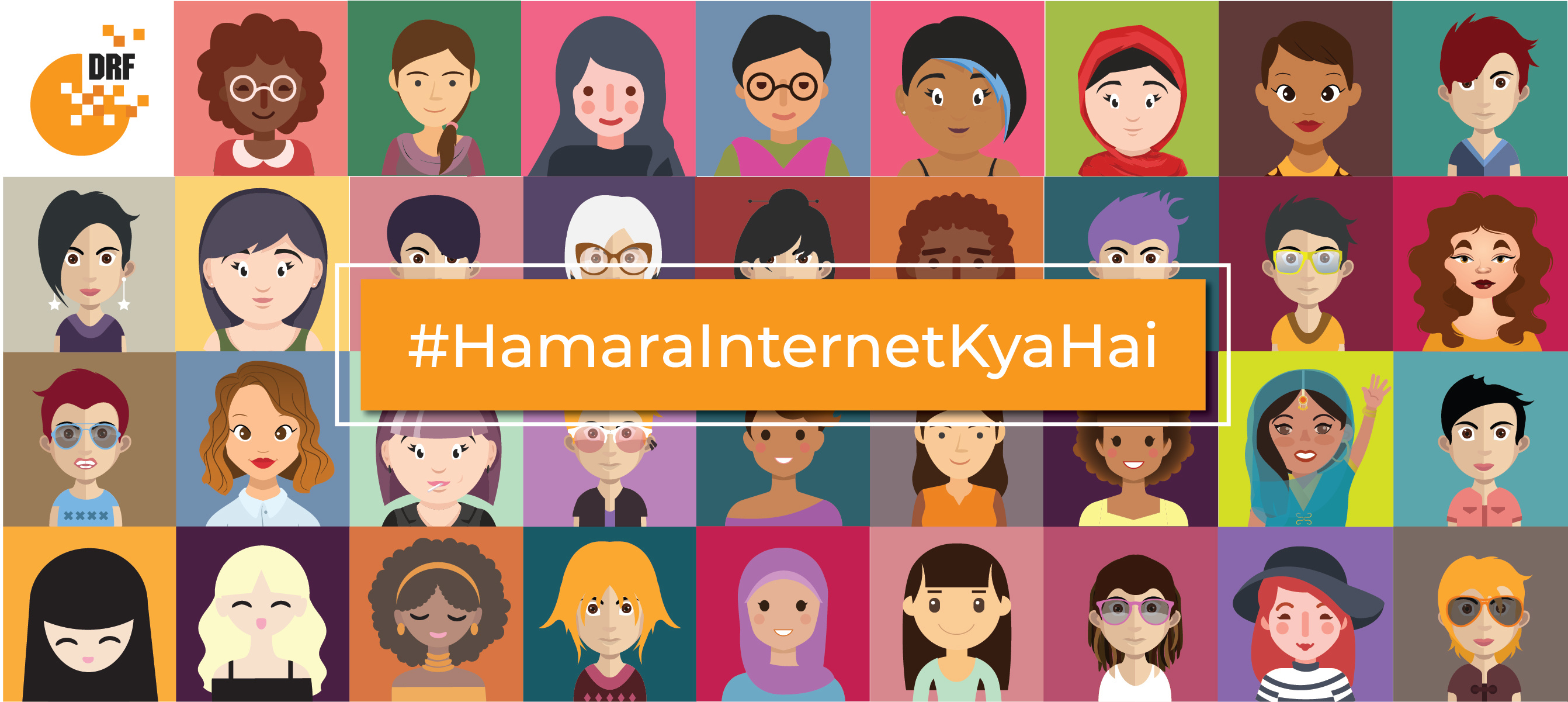
November 28, 2017 - Comments Off on Why does a Feminist Internet matter?
Why does a Feminist Internet matter?
By the time you reach the middle of this post, users around the world will have generated a total of 466260 tweets, 3764940 Google search queries, and 157644120 emails. That is how much data is generated in one minute on the Internet.
Sit back and think about it for a moment.
The digital age is here, loud and clear. Cyberspace is rapidly expanding and becoming a key part of our lives. Distinctions between offline and online are beginning to blur, both at the individual level as well as the collective. What does this mean for those of us who are still working on the problems of the offline world, its millennia of discrimination and inequality, the many forms of oppression woven into the fabric of our social structures?
Digital spaces are rapidly changing and have the power to amplify our voices far beyond what was ever possible at any point in human history before. It can give a single image the power to catalyze a movement, or put a political candidate out of running with a data leak, or broadcast evidence of war crimes far and wide so their perpetrators cannot escape the moral outcry, or give oppressive regimes all-new tools with which to control and monitor citizens. The Internet is what we make it--which is why we must make it feminist. This must not be a tangential aim for our activism, a “nice to have” that can be dealt with later. If the world is going digital, we must be prepared to occupy digital space.
Based on this, we organized a session around feminist principles of the Internet earlier this year. Borrowing from the framework developed by APC, we outlined 5 key areas of change in the efforts to envision what a feminist Internet would look like. But Pakistan has its own unique circumstances, so we also looked at what a feminist internet means to us.
Access
We believe an Internet that is not accessible is not a feminist Internet. For all its importance, large pockets of the world as well as Pakistan have limited or contested access to the Internet. From socioeconomic factors to conflict and security concerns, the ease of connectivity is not available to many people. As the State shifts to a digitized model of public service, where many key functions are supplemented by or providing online whether through safety apps or vehicle trackers, does this mean these people are lesser citizens? Do they not have the same right to access and use technology?
Movements & Public Participation
The Internet’s most disruptive global impact so far has been its ability to circumvent, subvert, or even dismantle hegemonic models of governance, communication, and cultural dissemination. This is a trait worth protecting, through a struggle for net neutrality and refusal to cede space, as well as enhancing by adopting it as a powerful tool for civil resistance.
Economy
Traditional economies are saddled with traditional barriers to access and loopholes for discrimination. A feminist Internet must create and claim space for alternate economies, breaking down barriers to allow historically marginalized groups an equal chance at determining their own economic future and social mobility, and by ensuring that a fair return for digital labor is obtained. In this way, not only is a sustainable feminist economy developed, we successfully provide society a meaningful replacement to exploitative economic structures.
Expression
Because expression is pillar of both cultural growth as well as resistance, a feminist Internet must protect expression. We must utilize this medium to spread the message of liberation, while at the same time ensuring that censorship is not able to rebrand itself as false concern for public safety or morality. Moral panic must not be allow to drown out moral imperatives to promote justice.
Agency
Agency is a core tenet of struggles that seek the recognition of human rights and dignity for all people. Our understanding of technology and the dehumanizing effect it may sometimes produce must change; we must develop an ethics of compassion not just for those we see before us but also for those we only interact with behind a screen. Digital creator and digital user must not be seen as mutually exclusive--final authority and ownership of our digital lives must rest with our own selves.
Author: Fatima Athar
Published by: Digital Rights Foundation in Blog

Comments are closed.